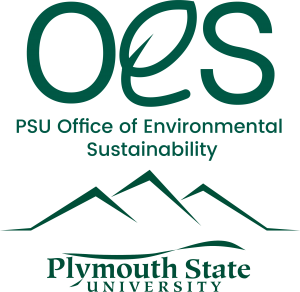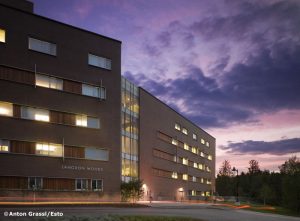
Plymouth State University’s efforts on sustainability are anchored in a commitment to educate students about a sustainable lifestyle, to study and care for the environment, and to promote sustainability to the campus community and the world beyond. Sustainability efforts are evident throughout campus; in a program that integrates sustainability across the curriculum, in residential life, and in dining services. For over 25 years, Common Ground, a student environmental and social justice organization, has been focusing on environmental issues through events and service projects. The University’s commitment to the environment also encompasses a new courses and majors aimed at preparing graduates for careers in environmental science, stewardship, and policy; a long-standing campus-wide recycling program; and EcoHouse, a “living-learning laboratory” that shows students how even small-scale environmental design features can have important environmental implications.

The University has taken a leadership role among the nation’s most environmentally friendly institutions of higher education by signing the American College and University Presidents Climate Commitment. PSU’s commitment to “green building” was realized by the 2006 opening of the Langdon Woods Residential Complex, the first building in New Hampshire—and one of the first and largest university residence halls in the country—to receive the U.S. Green Building Council’s Leadership in Energy and Environmental Design (LEED) Gold certification at the time. The work has continued with many innovative projects you can learn more about on this site. The Office of Environmental Sustainability works in partnership with all members of the PSU community to engage students to advance the University’s goals on sustainability.
